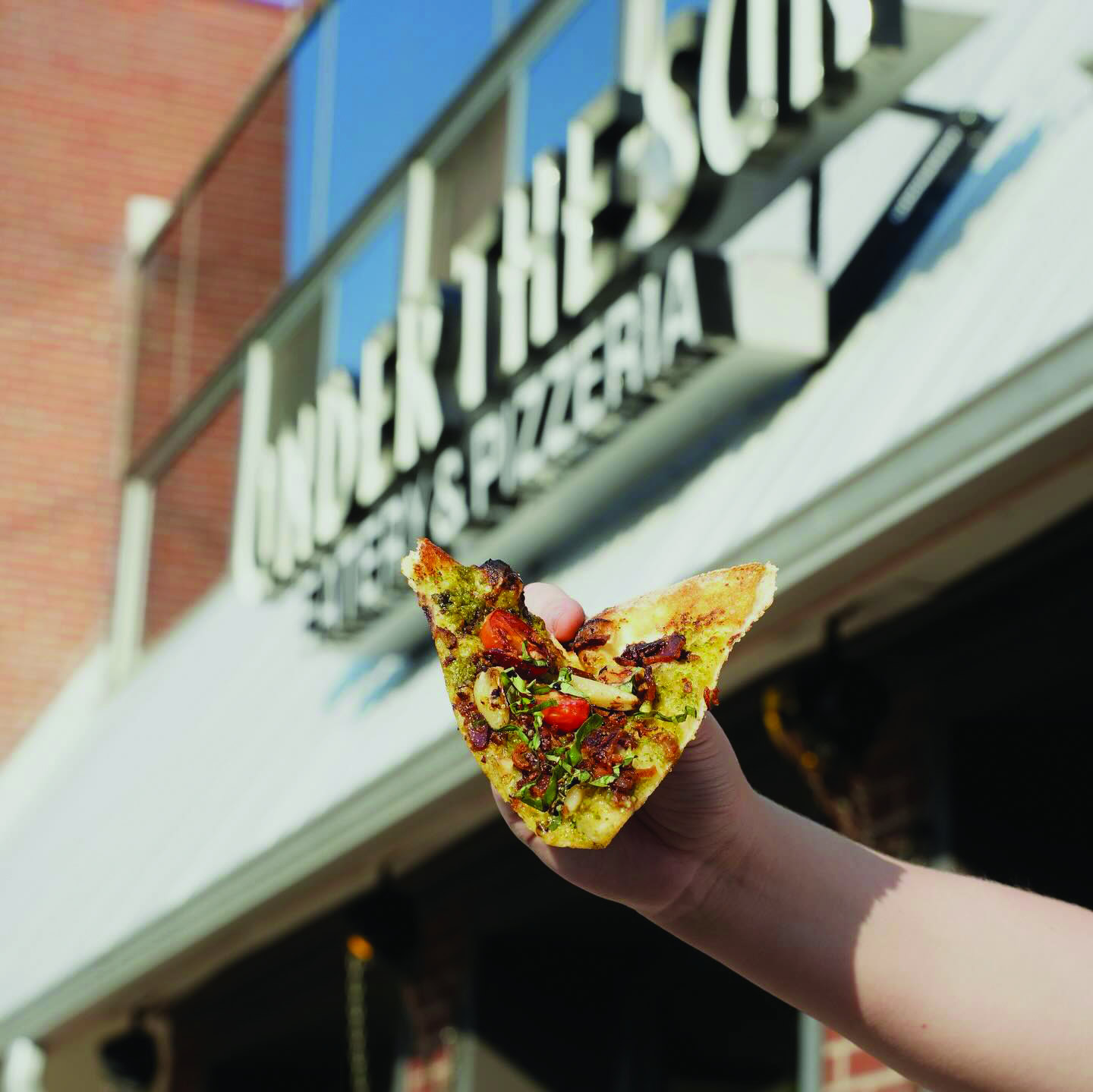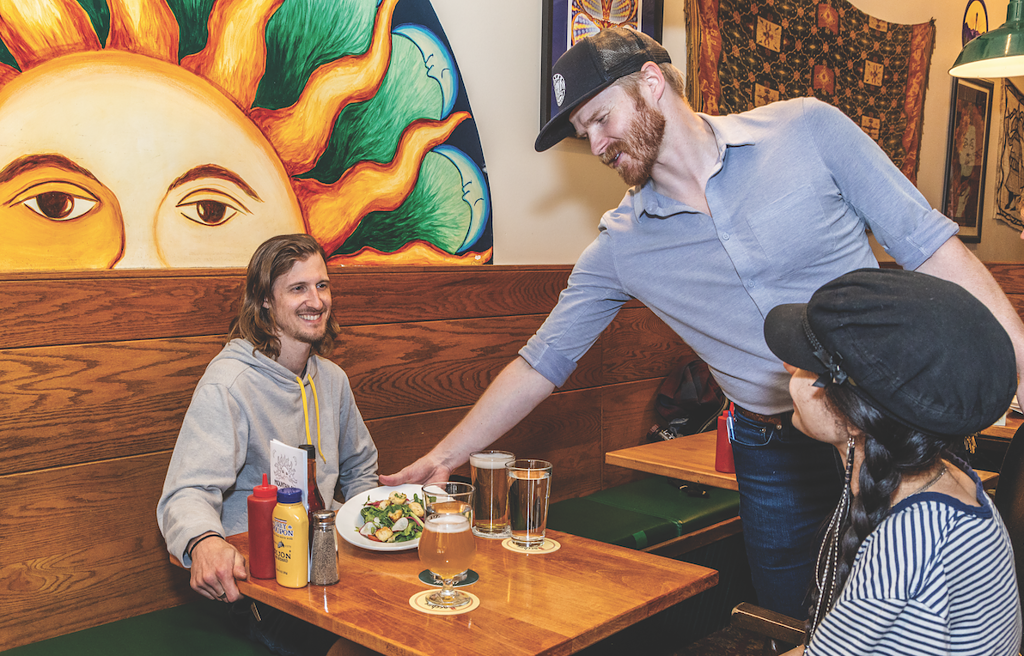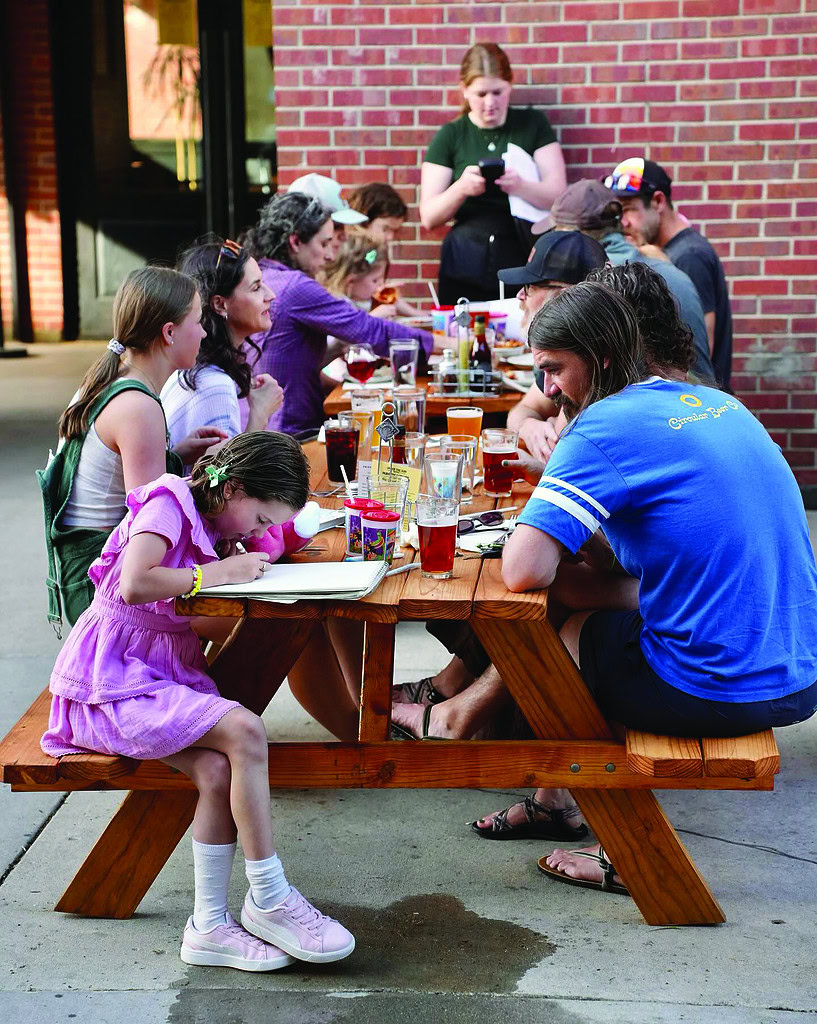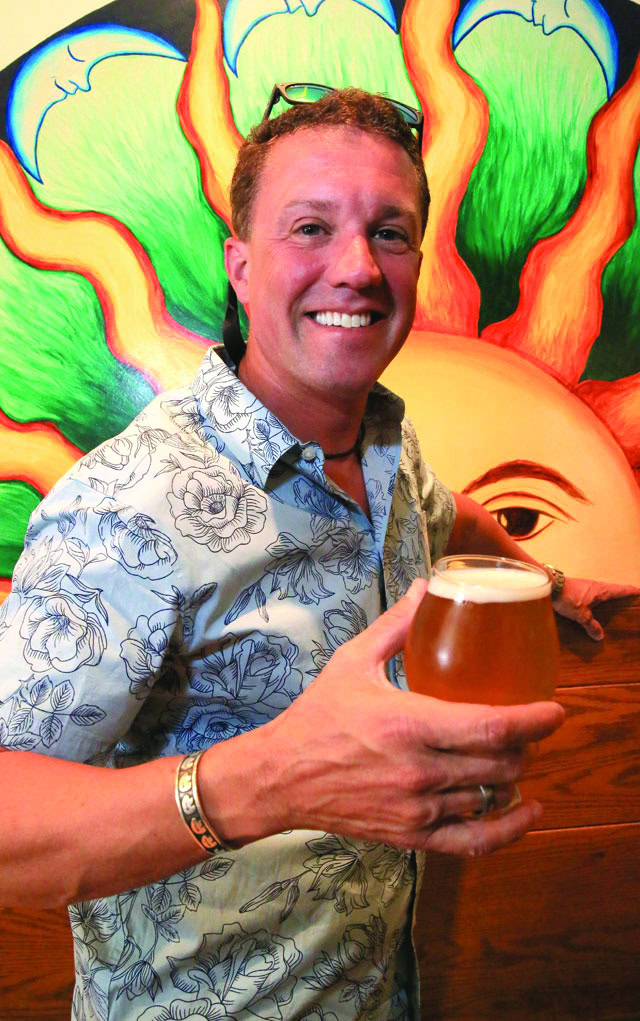
Before opening for the final night of business at Under the Sun, the eatery’s owner, Kevin Daly, is matter-of-fact in detailing his situation.
“We’re getting slammed,” he says. “People have been coming back one more time, but the restaurant has been so slow this year.”
The community had been shocked by the sudden announcement on social media: “Our operations are no longer sustainable,” it read. “Please know that despite our best efforts to adapt to the challenges we faced, we believe that closing our doors is the most responsible course of action at this time.”
An impossible situation
The 11-year-old gathering spot for the Table Mesa neighborhood closed on Aug. 17. However, this day had been coming since the pandemic, according to Daly. Other local eateries are calling it quits, too, citing a challenging environment.
“Under the Sun was losing money, but the decision finally came down to staffing,” Daly says. “We literally had no one to run Under the Sun next week. All of our locations have challenges attracting staff and managers, but the situation in Boulder is impossible.”

Under the Sun was part of the 31-year-old, Boulder-born restaurant group that includes Mountain Sun Brewpub and Southern Sun in Boulder, Longs Peak Pub and Taphouse in Longmont and Denver’s recently relaunched Vine Street Pub. Those locations are open and have absorbed Under the Sun’s staff, according to Daly.
Some of the eatery’s popular items will appear on menus at Mountain Sun and Southern Sun. The restaurant itself will remain available for private events.
“We really don’t know what to do with that space,” Daly says. “Someone will probably pick up the lease.”
Where the young people aren’t
“You need two things to make a successful restaurant these days,” Daly says: “Young workers and young customers who live nearby. Boulder has neither.
“The city has become a much more difficult place to run a restaurant.”
Under the Sun is just the latest example of a local independent food business closing or changing its operations. The eateries’ social media announcements sound eerily similar, spotlighting rising utility expenses, increased fees and taxes, skyrocketing food costs and wage increases. There’s only so much diners will pay for a burger or taco.
Black Pepper Pho Restaurant just closed at 2770 Pearl St. Farther west on Pearl Street, Mateo restaurant and Dedalus wine shop are both shuttered on the same block.
Earlier this year, Under the Sun’s Table Mesa neighbor, Murphy’s South, closed and the space was filled by Illegal Pete’s. The Local (formerly Murphy’s North) in North Boulder, Niwot’s 1914 House and Lafayette’s 95a Bistro are also departed. Downtown’s Ash’Kara closed in 2023. The space was filled by The Sophomore for mere months before that eatery closed and was replaced by The Colorado Club.
Despite Boulder’s Guy Fieri sightings, Michelin awards and the Coach Prime glow, these closings are not entirely unexpected. The signs of trouble were clear by March when First Bite, Boulder’s celebrated dining week, was canceled because of dwindling interest from restaurants and diners.
Other restaurants are adjusting their operations. Farow restaurant in Niwot recently changed its format from fine dining to more affordable fare, while adding lunch and a wine store. Longmont’s The Passenger restaurant announced that it would only be open for public dining on Friday and Saturday evenings.

The grass is greener
As at most Boulder dining establishments, virtually the entire staff at Daly’s locations lives elsewhere.
“I cannot bribe people to drive into Boulder to manage or work,” he says. “They can find jobs in Boulder County and Denver close to where they live. They can’t afford to live here.”
The presence of a large university, CU Boulder, in town has not been much help to alleviate his staffing shortages, Daly says: “There are fewer university students working.”
Slowing business makes it hard to hold on to workers because servers and cooks end up making less money from tips. The customer base for local eateries has also changed.
“Boulder’s population is getting older,” Daly says, “and the older people who supported us don’t eat out much anymore.”
A recent CU Boulder study found that, since the pandemic, more than 50% of older adults say they are spending more time at home and less time socializing at restaurants and other public places.
Like other restaurateurs, Daly says doing business has simply become less daunting outside of the Boulder bubble.
“After reopening Vine Street this summer, we realized it’s so much easier in Denver,” he says. “There are workers available and young people living nearby who go out. The same is true in Longmont.”
New local eateries
The doom-and-gloom dining scenario hasn’t killed the entrepreneurial itch for some restaurateurs.
Chef Johnny Curiel recently opened Cozobi Fonda Fina, a fine dining Mexican restaurant, at 909 Walnut St. The team behind Gemini restaurant has launched High Country at 1117 Pearl St., while Zoe Ma Ma moved to a bigger space at 919 Pearl St.
Other recent openings include the Boulder Swim Club at The Broker, Sanitas Brewing Co. in Lafayette and Superior’s Bambei Brewing Company. On Aug. 23, The Jasmine Bar starts pouring drinks at 836½ Main St. in Louisville, and Bona Coffee Roasters begins brewing at Boulder’s Avanti Food & Beverage. This fall, the folks behind Oak at Fourteenth and Corrida will open C Bar and C Burger at 921 Pearl St.
How long they will last is another matter. Several of the above eateries took the place of short-lived establishments or the shells of former restaurants that sat empty for years.

Nothing but chains
The near future looks even more challenging, according to Daly, because of rising labor costs.
“Mountain Sun on Pearl Street is losing more than $100,000 a year, but it is where we started and we want to stay,” he says. “But if Boulder raises the minimum wage again, we’ll have to think about closing the Mountain Sun.
“I’m a progressive,” he continues. “I lobbied for a higher state minimum wage, but raising it further in Boulder won’t really help the people who work at restaurants and bars. None of them can afford to live in Boulder anyway.
“It’s just virtue signaling.”
What would help, Daly says, is to “make housing affordable. Get workers back into the offices. Making driving easier, not harder. The same with parking. Improve public transportation. The City also has to do something about homelessness downtown. People aren’t coming down because they are afraid.”
Otherwise, Daly has a dire warning: “There won’t be anything in Boulder but chain restaurants.”
Read different views about Boulder's pending minimum wage hike from Susan Gibson, a former small business owner, and Boulder city council woman Nicole Speer
